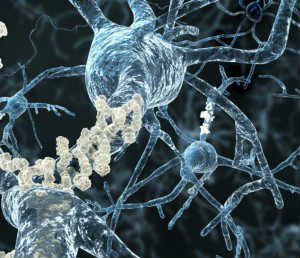Mischer Neuroscience Institute (MNI) was the first in Houston to offer a new diagnostic tool that enables physicians to diagnose Alzheimer's disease definitively, and gives researchers insights into how they might one day prevent Alzheimer's disease.
Through the use of this screening tool, called amyloid imaging, an FDA-approved agent called Amyvid binds to abnormal proteins in the brain, allowing physicians to, for the first time ever, visualize the protein on a patient's brain imaging scan. If they see the protein, called beta-amyloid, they can know for sure that the diagnosis is Alzheimer's.
Physicians and researchers have long been searching for clues into how Alzheimer's works, and how to prevent its progression. The Alzheimer's Association estimates that 5.3 million Americans have Alzheimer's Disease, a form of dementia, and projects a 74% increase over the next 15 years. Alzheimer's is the seventh leading cause of death in the U.S.
Looking forward

In addition, scientists know that Alzheimer's Disease involves the deposition of beta-amyloid. But, they have had no way to visualize beta-amyloid in humans and hence have not been able to determine when it is deposited, how certain factors enhance deposition, or whether potential treatments reduce deposition. Amyloid imaging offers researchers and physicians an unprecedented opportunity to view Alzheimer's Disease in a patient.
Because Alzheimer's is projected to affect more than 100 million people world-wide by 2050, the ability to diagnose Alzheimer's Disease definitively is crucial. Amyloid imaging allows MNI physicians to recognize who will develop Alzheimer's Disease before symptoms occur, and to develop treatments to delay or even prevent Alzheimer's Disease altogether.
Contact Us
Please fill out the fields below, and we will contact you.